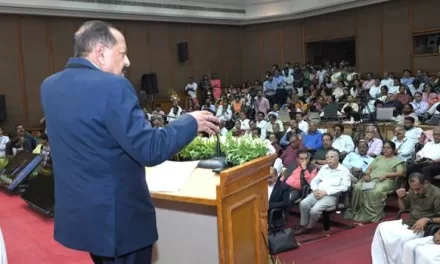November 29, 2024
The Supreme Court has ordered the inclusion of the National Medical Commission (NMC) in an ongoing legal case concerning the appointment of Heads of Departments (HoDs) in medical colleges, underscoring the national significance of the issue.
The case stems from a petition filed by two senior professors at the Karnataka Institute of Medical Sciences, Hubbali (KIMS), who were removed from their HoD positions in Pharmacology and General Surgery after the institute implemented a new rotation policy limiting HoD tenure to three years. The professors argue that their appointments, made under Regulation 3.10 of the NMC’s Teachers Eligibility Qualifications in Medical Institutions Regulations, 2022, were based on inter se seniority, making the new policy inconsistent with statutory regulations.
High Court Decisions and Key Disputes
The Karnataka High Court (Dharwad Bench) initially sided with the petitioners in February 2024. It ruled that:
- The HoD role is an administrative position requiring appointments based on seniority under Regulation 3.10.
- Institutional by-laws, such as those adopted by KIMS, cannot override statutory regulations set by the NMC.
However, a Division Bench overturned this ruling in March 2024, determining that the HoD role was not administrative and fell outside the scope of Regulation 3.10. The court instead applied Regulation 3.9, which governs eligibility criteria for HoDs, and upheld the rotation policy, citing its potential to encourage innovation and inclusivity within academic departments.
Supreme Court’s Considerations
The Supreme Court will address three critical questions:
- Did the High Court err in categorizing the HoD post as non-administrative?
- Does Regulation 3.10 override the by-laws introduced by KIMS?
- Is the retrospective application of the by-laws affecting the petitioners’ tenure legally valid?
Petitioners’ Arguments
The petitioners contend that the HoD position involves substantial administrative duties, including staff recruitment, curriculum planning, admissions oversight, resource procurement, and grievance management. They argue that the High Court’s ruling diminishes the hierarchical structure critical to efficient departmental management.
Additionally, they point out that a rotation policy was proposed in the draft NMC regulations but was dropped after stakeholders raised concerns, indicating a deliberate decision against such a policy. The petitioners claim the retrospective application of KIMS’s by-laws is arbitrary and undermines their legally secured tenure.
Broader Implications
By including the NMC in the proceedings, the Supreme Court acknowledges the wider implications of this case for medical institutions nationwide. The ruling could set a precedent for balancing institutional autonomy with regulatory compliance in academic governance, particularly concerning seniority-based appointments versus rotation policies.
The case’s outcome will likely have lasting effects on administrative practices in medical colleges, shaping how leadership roles are assigned and maintained in the future.












